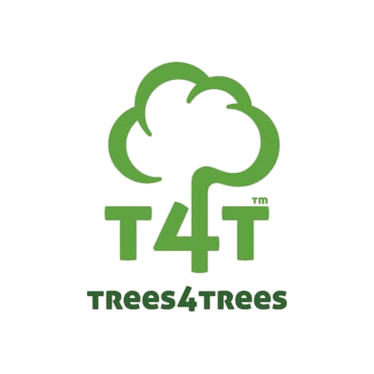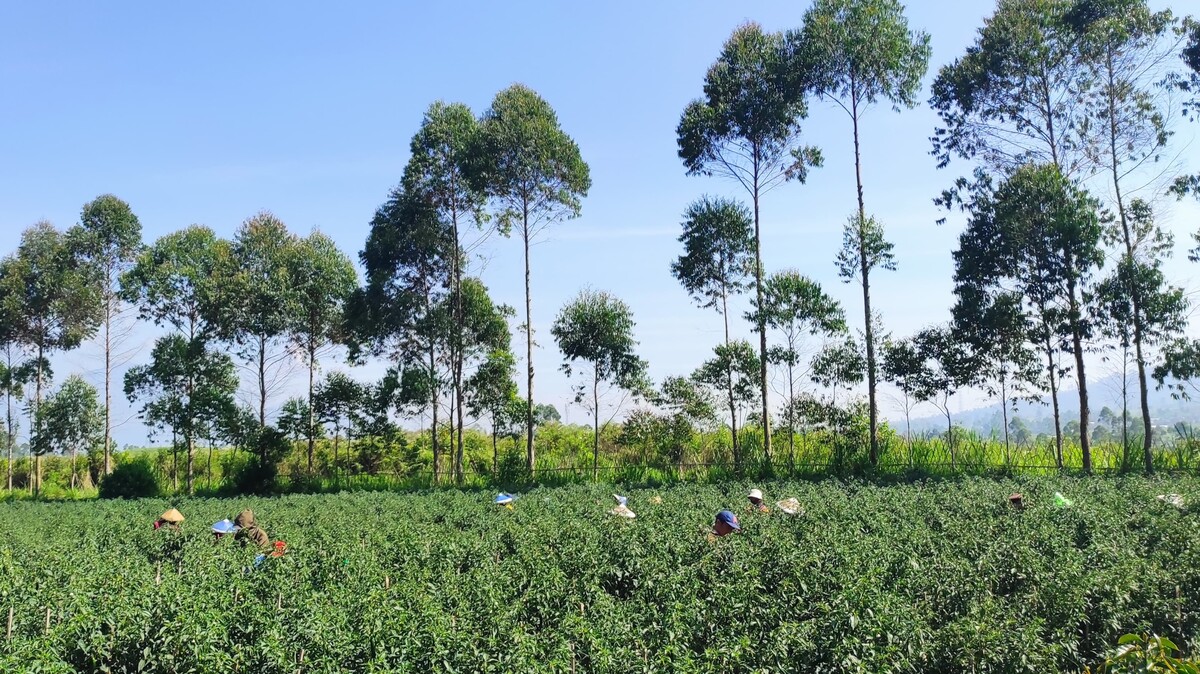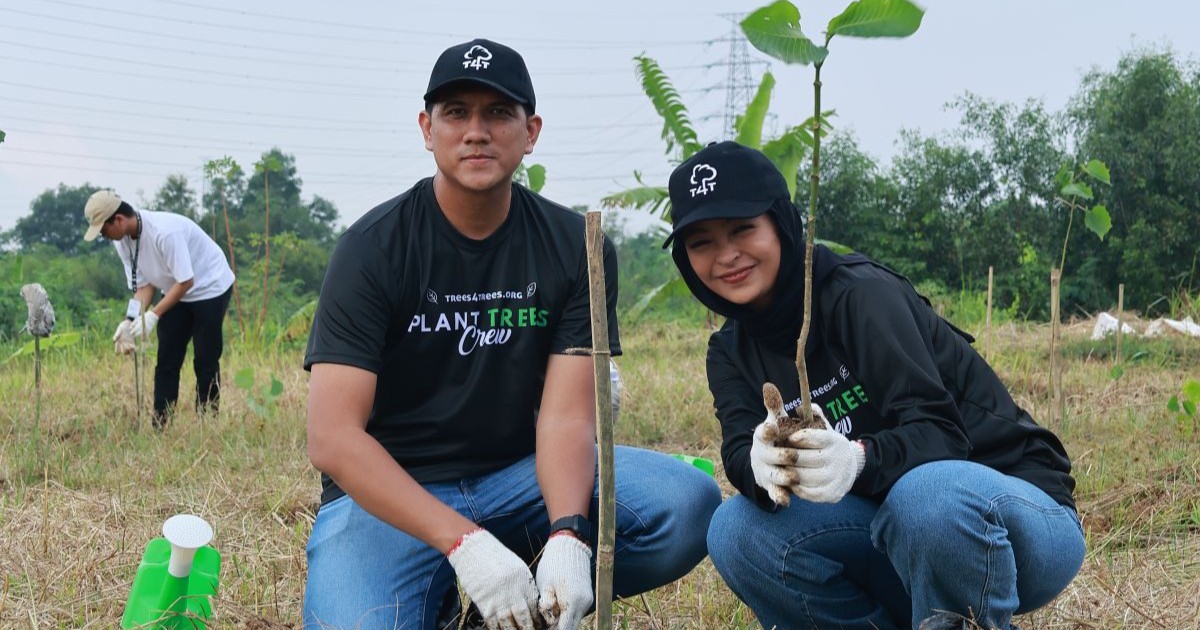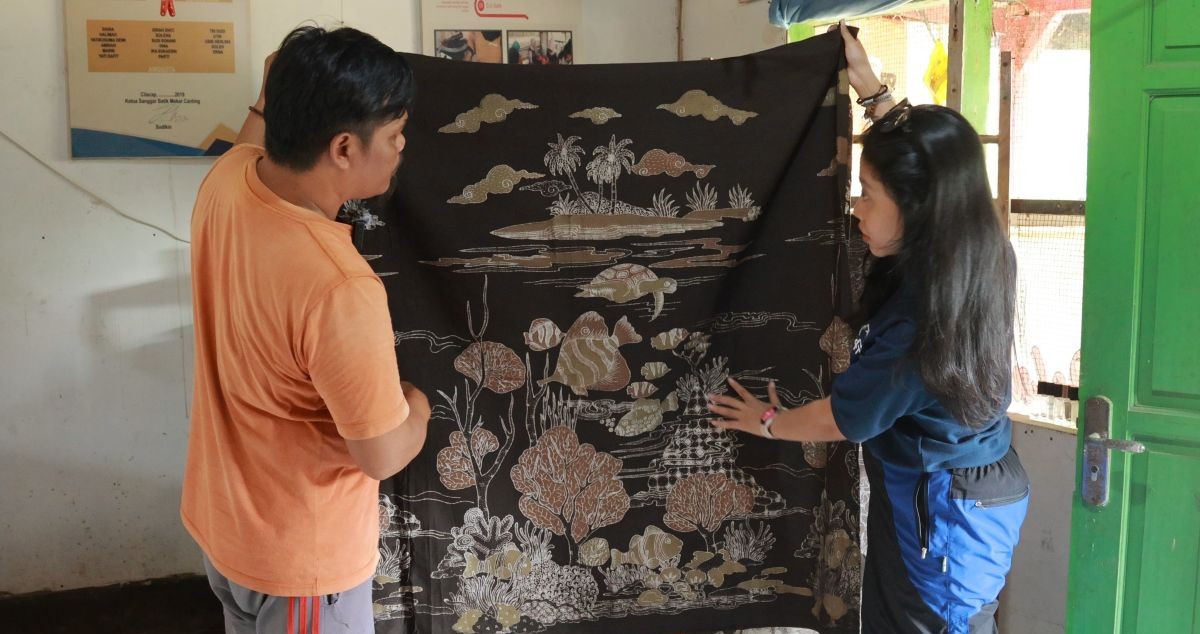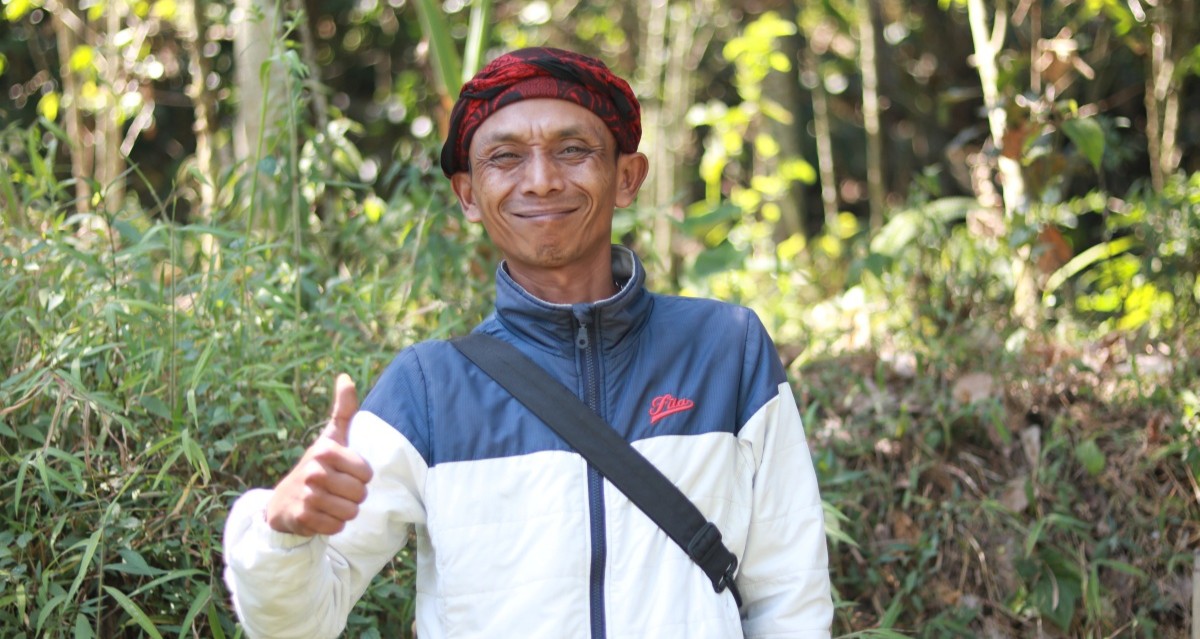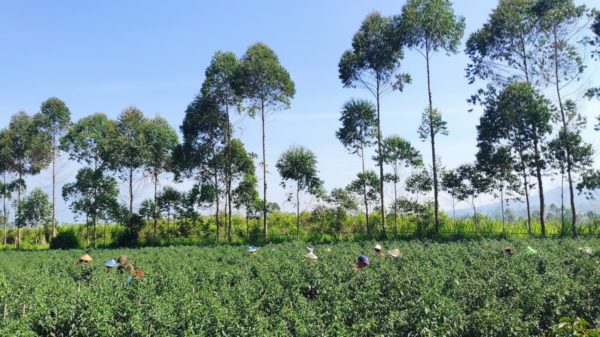
About 30 miles south of Bandung in West Java, Pengalengan District is a rolling green patchwork of dairy farms and tea plantations. Traditional villages are dotted all around, along with lakes, waterfalls, and hot springs. For the growing number of tourists who come here to enjoy the fresh air and beautiful views, the area appears serene and peaceful. But below the surface, Pengalengan has a different story to tell.
In recent years, unsustainable farming practices, combined with unchecked land conversion, have degraded the land. Combined with natural disasters like earthquakes and extreme weather events, many farmers have begun to worry about the environmental impact these developments are having on the landscape.
Working with nature, not against it
One of them is Harry Raharja, owner of Harry’s Farm in Margamukti Village. In 1990, he began planting vegetables, crops, and fruits on his family farm in the Cisangkuy sub-watershed area. At the time, some of his neighbors were selling their land to tourism developers. Those who continued to farm did so with a heavy hand – removing tree cover and using chemicals to maximize their yields. Bucking this trend, Harry continued to implement sustainable practices as his ancestors had done – working with nature, instead of only taking from it.
For Harry, this is not just an aesthetic decision. He believes having tree cover around his farm brings benefits like shade and fresh air, while also binding the soil together and protecting his land from erosion and water shortages. “It may reduce the yield I can harvest from the farm,” he says, “because the vegetables which are covered by trees will not get as much sunlight or grow as well as those in open land. But I don’t mind. I get a greater benefit by letting trees grow at my farm.”
Harry is working with nature to maintain fertility on his farm. To avoid monocropping, his land is planted with a range of vegetables such as chili, potatoes, carrots, and tomatoes. Then, on the borders, he has planted eucalyptus and rasamala trees to provide shade. He has also planted groves of orange trees, which stand apart from his vegetable gardens.
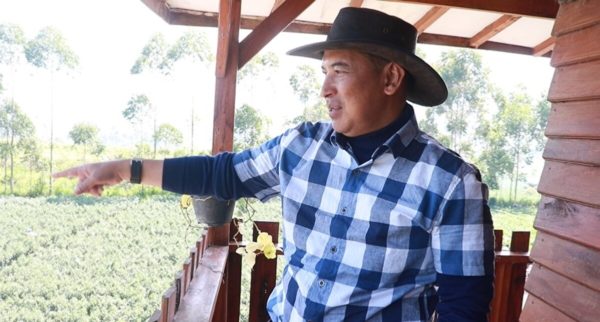
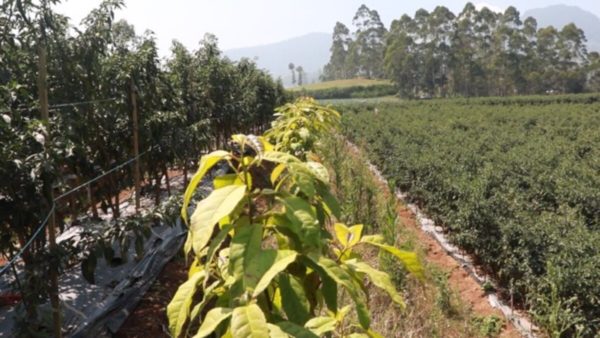
Short-term gains create long-term problems
In the time it has taken for Harry’s trees to grow, he has seen a boom in land conversion around Pengalengan, most notably the conversion of forest areas into tourist attractions such as lodges, cafes, lookout points, and other vegetable plots to feed the ever-growing influx of visitors.
Many of these plantations were created without environmental sustainability in mind. Their lack of terracing makes the land more vulnerable to landslides, which are triggered by flooding during the rainy season. To maximize their yield, farmers also clear away trees from the land, making it even more prone to erosion.
The loss of tree cover has also made Pengalengan, once famed for its cooler climes, noticeably hotter during the day, and caused water shortages due to a lack of absorption and storage capacity. This cycle of flooding and drought has taken a heavy toll on the land, while weekend traffic jams have also created a new problem: Air pollution.
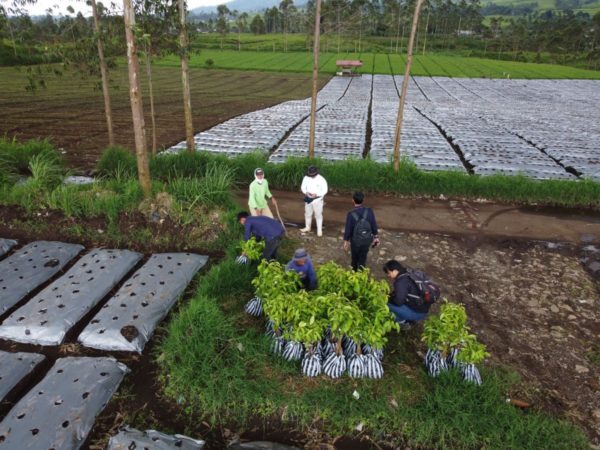

Nature-based solutions for man-made problems
Harry saw the damage being done and decided to take action. In 2022, he joined a Trees4Trees planting program which helped plant 10,000 avocado, rasamala, and mahogany trees on his 30-hectare plantation. With funding support from Astra Zeneca Forest (AZ Forest) and One Tree Planted (OTP), these activities formed part of a wider project to add 50,000 new trees to Bandung Regency, focusing on three sub-watersheds of the Citarum River Basin (Citarik, Cirasea, and Cisangkuy).
To this day, each of the trees Harry planted with AZ Forest, OTP and Trees4Trees are standing strong. When other areas in Pengalengan experience flooding and landslides, or when water shortages hit during the dry season, Harry’s Farm stays green and productive. By maintaining tree coverage on his land and staying connected to nature, he is better able to sustain his yields and ensure the availability of water.
These benefits have also impacted the wider community. Harry employs a team of local farmhands on his land, who always have work to – whether harvesting fruits and vegetables or caring for the trees that shelter his fields. In addition to providing them with a reliable livelihood, the environmentally conscious practices implemented at Harry’s Farm have also helped to inform and educate the wider community. With continued support from AZ Forest, Trees4Trees and OTP, the people of Pengalengan can repair the damage done in recent times and look forward to a greener, more sustainable future.
Interview: V. Arnila Wulandani. Writer: Chris Alexander. Photos: Kemas Duga Muis/Trees4Trees
